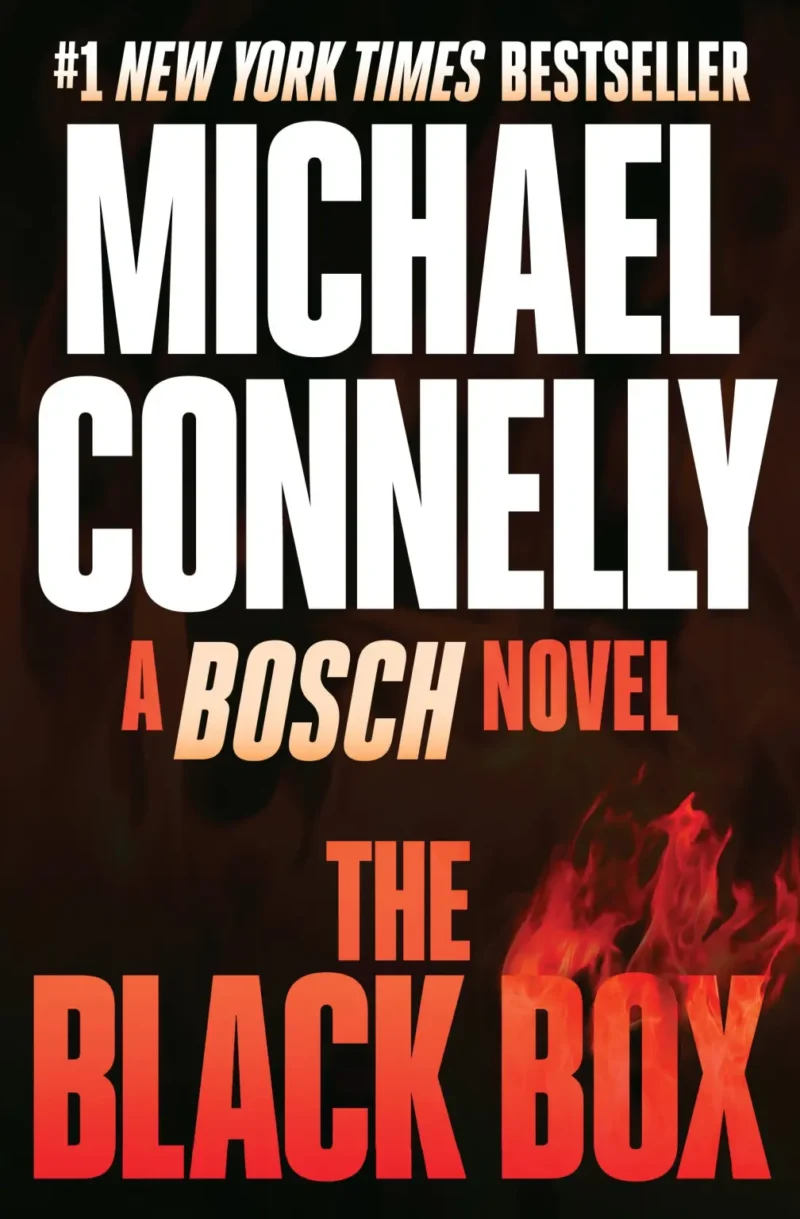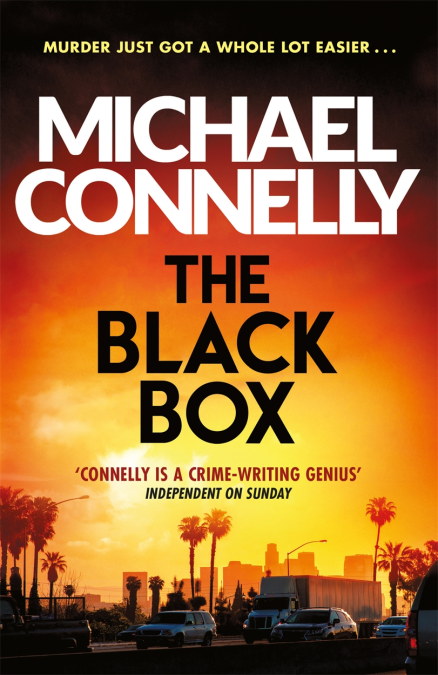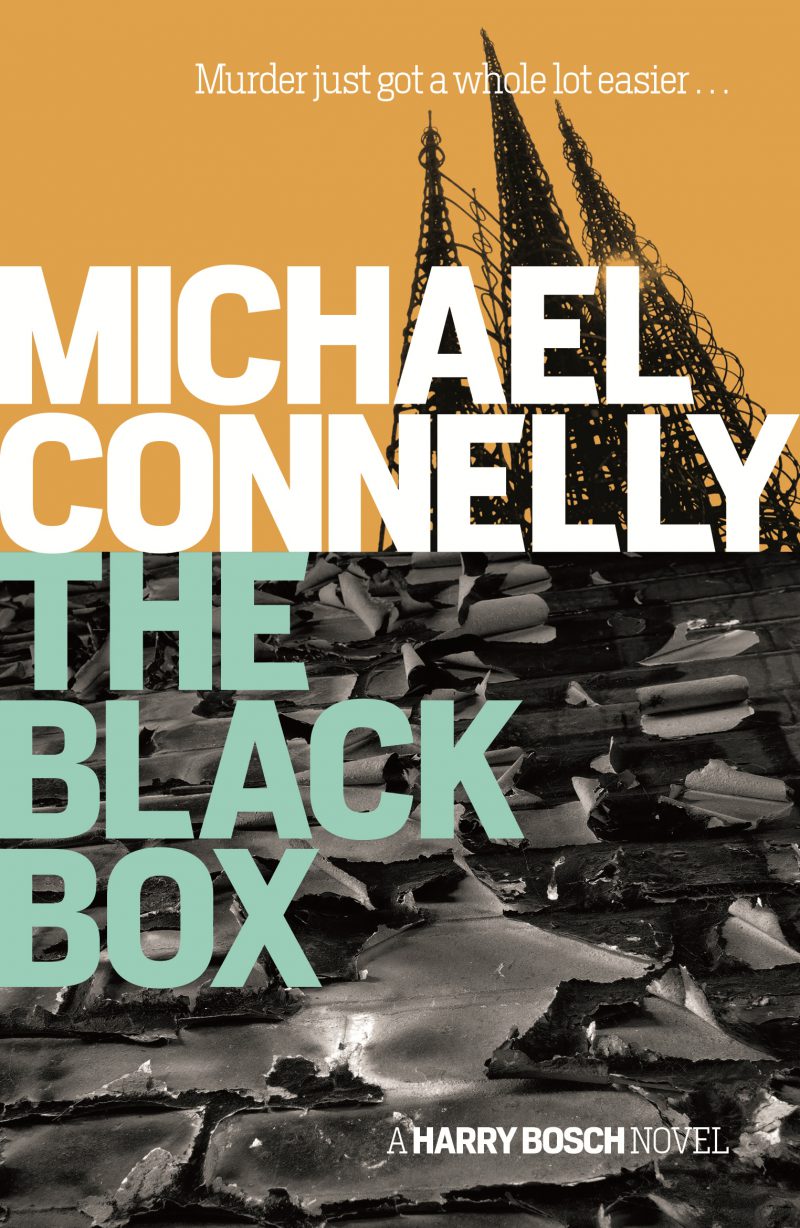The Black Box Essay
My novel, The Black Box, is perhaps more special to me than other books have been, and I have high hopes that Harry Bosch readers will particularly embrace it. I guess it’s because the book has special meaning for me on multiple levels. First of all, it’s my twenty-fifth novel, and I don’t think any writer starting out can ever see the day when they will be publishing their twenty-fifth novel. I know I certainly didn’t. When I started out, my hope was to get one book published and maybe follow it up with another. There was no thought at all about quitting my day job. So twenty-five for me was a pie in the sky sort of thing. So was twenty years. Yes, this is my twenty-fifth novel in twenty years of publishing. Hard to believe. When that first novel came out in 1992, I didn’t even have an e-mail account or a cell phone, there were no book blogs or e-books, and the first George Bush was president. As Jerry Garcia (who was alive then) would say, “What a long, strange trip it’s been.”
But I think what makes this book so special to me is something much more than literary anniversaries and book numbers. It’s the subject matter. Harry Bosch reopens the unsolved case of a journalist murdered during the riots that took place in Los Angeles in 1992. This is a subject that has always been important to me, and it’s the twentieth anniversary of this event that really inspired the book and makes it so special to me.
In 1992, I had not yet quit my day job. The year opened with The Black Echo being published in January and my literary career kicking off with some pretty good reviews. I took a couple of weeks off to promote the book and then I was back to work as a reporter for the Los Angeles Times covering the crime beat. Cops and crime all came together horribly at the end of April, when riots broke out following not-guilty verdicts in the trial of four officers accused of police brutality in the beating of Rodney King. I lived in and loved Los Angeles. I was writing fiction by night about a detective who loved his city and worked to make it better. When those verdicts came down, the city completely lost it. From a few disparate flash points a mob mentality took over, and America’s postmodern city was torn apart. I saw the best and worst in people, images I can’t forget and that I still work out in my fiction all the time.
On the first night of the riots I was posted at the spot where Rodney King had been pulled over by police and beaten while more than a dozen officers surrounded him. There was now a crowd there gathered to hear the verdicts and to rejoice in justice prevailing. But they didn’t hear what they had expected to hear. Nobody did—even the seasoned journalists. And the crowd grew frustrated and angry. There were other reporters there and TV trucks with video screens showing violence breaking out in other parts of the city. Soon I was surrounded by angry people. They were pushing and yelling, angry with the messenger: the reporters bearing the bad news. In fourteen years as a journalist it was the only time I ever felt that I was truly in danger. But I was surrounded, and there was nowhere to go. I had put my notebook away and was simply holding my hands up, palms out in front of me, showing that I was not a threat, that I was not the bad guy here. Then suddenly the crowd was parted by one man. A black man, a total stranger to me, wearing a T-shirt that I will always remember said LOVE on it. He pushed through to me and raised his hand. I braced for what was coming, and what came was his hand on my arm. He said, “I’ve got to get you out of here.”
And he did. He pushed back through the crowd, pulling me with him. Something about him having hold of my arm made people step back and give me passage. Was it the T-shirt? Did his act of kindness and bravery make them realize what they were doing? I don’t know. All I know is that he got me to my car and stood by it while I got in and got away from there. I was safe and could finally breathe again. As I was driving away, I realized I would never know who that man was and that I had not even said thank you.
The rest of that night and the following night I moved around the city and called in reports on widespread looting and arson. I watched them pull a school bus up in front of the doors to the LAPD’s Foothill Station to help repel the angry crowd that descended on the place where the officers who beat Rodney King had been assigned. I walked down Hollywood Boulevard, watching groups of mindless looters descend en masse on Frederick’s of Hollywood, a lingerie store. Nothing made sense in what I was seeing. Los Angeles became a place I didn’t recognize.
It is no wonder to me that the riots have come up often in the fiction I have written since then. At least four of my books drew partial plot lines from them. And now with The Black Box I go back to 1992 and begin with Harry Bosch attempting to do his job in those harrowing circumstances. I think that with what I have written I have finally said what I needed to say about that time. I’ve gotten it out of my system. I can’t say for certain that 1992 won’t come up again in the next twenty-five novels I hope to write. But I think I’m finished with it. The Black Box is dedicated to all of the readers who have sustained Harry Bosch for all these years, and to the unknown man in the T-shirt who parted the crowd that day.
*May not be posted or reprinted without the permission of the publisher.


